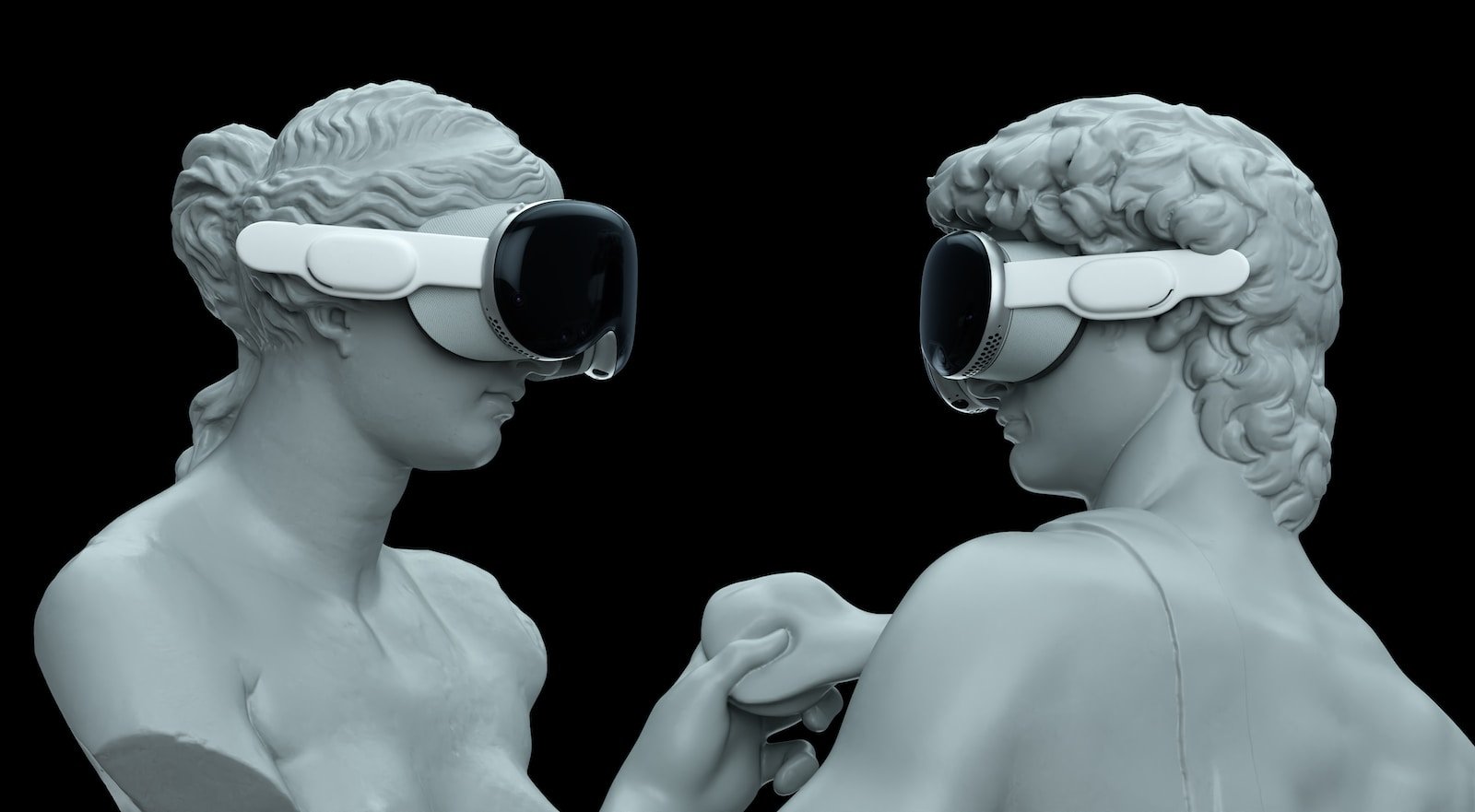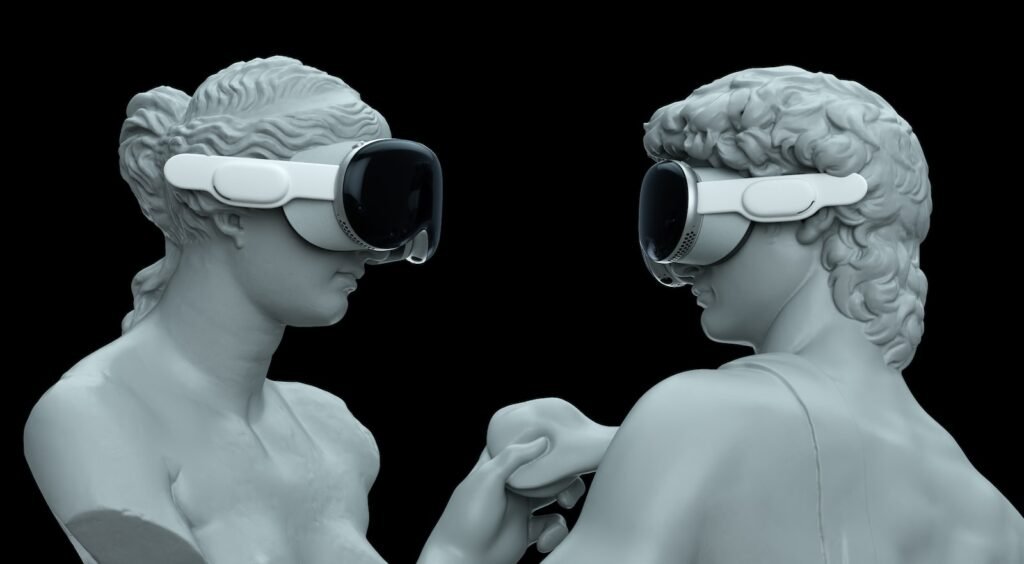Virtual Simulation
The concept of reality has always intrigued humans, leading to endless philosophical debates and scientific inquiries. Now, a new theory proposed by physicists suggests that our reality might be nothing more than a virtual simulation. This mind-boggling idea challenges our understanding of the universe and opens up a whole new realm of possibilities. In this article, we will explore the physicist’s theory of a virtual simulation, examine the evidence supporting this notion, and delve into the philosophical implications of such a concept.

The Physicist’s Theory of a Virtual Simulation
According to the physicist’s theory, our reality is akin to a complex computer program, with everything we perceive being nothing more than virtual data. This idea draws inspiration from advancements in technology and computer simulations, where virtual worlds can be created with astonishing levels of detail. Proponents of this theory argue that if we can create such realistic simulations, then it is plausible that a highly advanced civilization could have created our reality as a virtual simulation.
In the vast realm of theoretical physics, where the boundaries of our understanding are constantly being pushed, a revolutionary concept has emerged: the Physicist’s Virtual Simulation Theory. This theory suggests that the reality we perceive is not the ultimate truth, but rather a simulated construct. It posits that our universe, with all its complexities and intricacies, is nothing more than a highly advanced virtual simulation. While this notion may seem far-fetched, many physicists and researchers are beginning to explore the implications of this concept and the profound impact it could have on our understanding of reality.
The Physicist’s Virtual Simulation Theory challenges our conventional understanding of reality and opens up a world of possibilities. If this theory holds true, it implies that our perception of the universe is not an objective reality but rather a subjective experience within a simulated environment. This raises profound questions about the nature of consciousness, the existence of other simulated realities, and the purpose behind our own simulation.
One implication of the theory is the idea that our universe could be part of a larger multiverse, with countless simulated realities coexisting and interacting. Just as video game players can explore and interact with virtual environments, the theory proposes that advanced beings or entities could be orchestrating our simulation. This concept also raises the question of what lies beyond our own simulation. If our reality is itself a simulation, could there be a higher level of reality in which our simulators exist?
Furthermore, the theory challenges the very fabric of our understanding of physics. If our universe is a simulation, it suggests that the laws of physics we have deduced may be nothing more than programmed parameters within the simulation. This raises the possibility of manipulating these parameters to alter the nature of our reality. It could potentially pave the way for advancements in technology and allow us to create our own simulations, blurring the line between the real and the virtual.
The Physicist’s Virtual Simulation Theory offers a fascinating avenue for exploration and contemplation. While still a highly speculative concept, it challenges our preconceived notions of reality and opens up new avenues for scientific inquiry. If our universe is indeed a simulation, it forces us to question the nature of our existence and the purpose behind it. The implications of this theory are far-reaching, reaching into the realms of philosophy, metaphysics, and even the nature of consciousness itself. As physicists continue to delve deeper into the mysteries of reality, the Virtual Simulation Theory remains an intriguing concept that pushes the boundaries of our understanding.
Reality: Is it a Virtual Simulation?
To determine whether our reality is indeed a virtual simulation, scientists and philosophers have looked for clues and evidence in various domains. One key argument is based on the idea that our universe seems to follow mathematical laws and principles. This inherent mathematical nature suggests that our reality might be constructed using algorithms and computational processes, similar to how computer simulations function.
Examining the Evidence for a Simulated Reality
Supporters of the simulation theory point to certain phenomena and anomalies that could indicate a virtual nature of our reality. For instance, the existence of “glitches” or unexplainable phenomena in our universe could be seen as evidence of a simulation malfunction. Additionally, the discovery of limitations in physics, such as the Planck length and the speed of light, might be interpreted as constraints imposed by the underlying simulation.
Insights from Physics: Our Universe as a Computer Program
Several ideas in physics lend support to the theory of a simulated reality. One prominent example is the concept of the holographic principle, proposed by physicist Juan Maldacena. This principle suggests that information in a three-dimensional space can be encoded on a two-dimensional surface, much like a hologram. This implies that our universe could be a projection from a higher-dimensional reality, similar to how a computer program displays a virtual world on a screen.
Parallel Worlds and Simulated Realities: A Possibility?
Parallel worlds and simulated realities have long fascinated science fiction enthusiasts, but they also have a place in the physicist’s theory. Some proponents argue that our universe could be just one simulated reality among an infinite number of parallel universes. This idea stems from the concept of a multiverse, where multiple universes coexist, each with its own unique set of physical laws and properties.
Quantum Mechanics and the Simulation Hypothesis
Quantum mechanics, the branch of physics that deals with the behavior of particles on a microscopic scale, adds another layer to the simulation hypothesis. In the quantum world, particles can exist in multiple states simultaneously, only collapsing into a definite state upon observation. This wave-particle duality and the role of consciousness in the measurement process have led some to suggest that our reality is a product of conscious observation within a simulated universe.
The Simulation Argument: Evaluating the Theory
One of the most famous arguments in favor of the simulation hypothesis is the Simulation Argument, formulated by philosopher Nick Bostrom. This argument proposes that if a civilization reaches a stage where it is capable of creating realistic simulations, then it is highly likely that we are living in a simulation ourselves. Bostrom’s argument is based on statistical probabilities and the assumption that advanced civilizations would be interested in running ancestor simulations.
Are We Living in a Simulation? Assessing the Possibilities
While the simulation hypothesis presents intriguing possibilities, assessing the likelihood of its truth is challenging. Scientists and philosophers have attempted to tackle this question by conducting thought experiments and developing mathematical models. However, reaching definitive conclusions remains elusive, primarily due to the lack of empirical evidence supporting or refuting the theory. Nonetheless, the concept continues to captivate the minds of many, fueling ongoing research and debate.
Expanding the Simulation Hypothesis: Philosophical Implications
The idea of living in a simulated reality raises profound philosophical questions. If our universe is indeed a virtual simulation, it challenges our perception of free will and the nature of consciousness. It also raises ethical dilemmas, such as the responsibility of the creators of the simulation and the potential consequences of their actions. Exploring these philosophical implications provides a fertile ground for introspection and philosophical discourse.
Criticisms and Debates: Challenging the Virtual Reality Theory
As with any scientific theory, the simulation hypothesis faces its fair share of criticisms and debates. Skeptics argue that the concept lacks empirical evidence and is nothing more than a science fiction idea. Others question the assumption that advanced civilizations would be interested in running ancestor simulations and argue that the resources required for such simulations would be astronomical. Additionally, some proponents of the theory assert that the idea of a simulated reality raises more questions than it answers.
Scientific Studies on Simulated Universes: What Do They Reveal?
Scientific studies exploring the possibility of a simulated reality have yielded mixed results. Some researchers have proposed experiments and tests to detect signs of a simulated universe, such as searching for glitches or patterns in the fabric of reality. However, these studies have yet to provide definitive evidence for or against the simulation hypothesis. As technology advances and our understanding of physics deepens, scientists hope to gain further insights into the nature of our reality.
The concept of our reality being a virtual simulation challenges the very foundations of our understanding of the universe. While the evidence in support of this theory is far from conclusive, it continues to captivate the imaginations of scientists, philosophers, and the general public alike. As we explore the philosophical implications, assess the scientific evidence, and engage in debates surrounding this mind-bending concept, we must remain open to new possibilities and continue to expand our understanding of the nature of reality.

